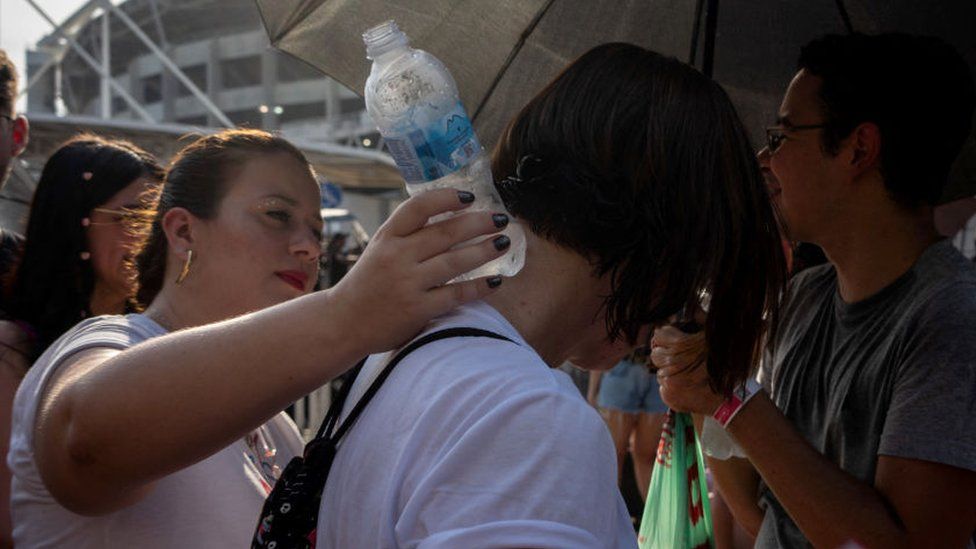-

-
-
Loading

Loading

When Nathalia Barbieri eagerly left her home to attend the Taylor Swift concert in Rio de Janeiro, she had no idea that it would end in tragedy. The soaring temperatures, reaching over 40C, coupled with a record-breaking heatwave, caused Nathalia to faint just minutes into Swift's performance at Nilton Santos stadium. Thankfully, she was rushed to a medical tent and survived, but sadly, 23-year-old Ana Clara Benevides Machado lost her life due to a reported cardiac arrest after being at the venue for more than eight hours. Ana Clara's death has sparked a conversation about the responsibility of concert promoters to protect fans in extreme weather conditions. Attendees took to social media platforms to criticize the company behind the Taylor Swift concert, Tickets for Fun (T4F), claiming that they failed to take proper care of the fans. They specifically mentioned the prohibition of bringing water bottles into the venue and the fact that only those near the front of the stage were provided with small cups of water. Fans have now launched a campaign demanding that authorities and promoters provide free bottles of water, describing Ana Clara's death as a result of pure negligence. The mayor of Rio de Janeiro, Eduardo Paes, also expressed his disapproval of the event's management and promised to take action against T4F. In response to the tragedy, T4F released a statement acknowledging climate change as a factor. However, fans, including Nathalia, were dissatisfied with this explanation, asserting that climate change should not serve as an excuse. The effects of extreme weather conditions have not been limited to this incident. In Chile, the Lollapalooza music festival had several artists temporarily pausing their performances to assist fainting fans due to high temperatures. Other events, like the Tomorrowland festival in Brazil and one of Taylor Swift's shows in Argentina, have also been disrupted by storms and heavy rain. Experts argue that event organizers need to adapt their practices to the challenges posed by climate change. Bárbara Rodríguez, an academic at the University of Chile specializing in green infrastructure, suggests ensuring that fans do not have to queue for hours in the heat and allowing them to bring water into the venue. She also emphasizes the importance of providing shaded zones and hydration points within the venue. Although she praises the Pan-American games in Chile for their use of green infrastructure, she laments that much of Latin America fails to take heatwaves seriously and lacks regulatory bodies to provide guidance for event organization. In the aftermath of Ana Clara's death, Taylor Swift rescheduled her second concert in Rio and expressed her devastation on social media. During her Brazil concerts in São Paulo, Swift met with Ana Clara's relatives, who wore white T-shirts adorned with Ana Clara's smiling face. For Nathalia, her memories of the Taylor Swift concert in Rio are overshadowed by the traumatic experience of the overcrowded and dehydrated medical tents. She continues to suffer from trauma and is no longer eager to attend concerts, such as Beyoncé's rumored Renaissance show in 2024, citing a lack of confidence in the safety measures taken at such events.